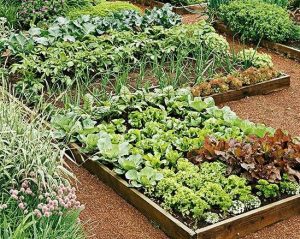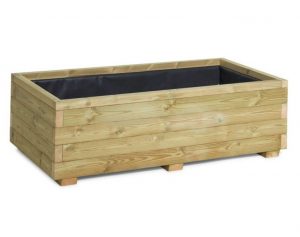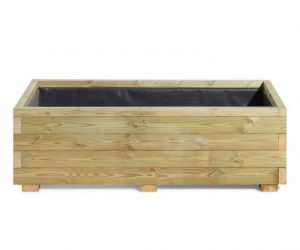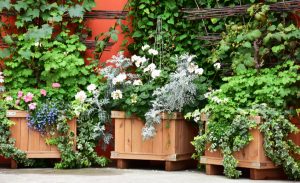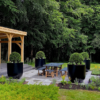Preparing the soil, planting the seeds, watering them every day and being overjoyed when you finally see that little shoot starting to grow! There are numerous educational benefits of encouraging children to get their hands dirty and interact with nature. Taylor Made Planters recognise the importance of these educational benefits through environmental play and therefore offer a range of planters that are purpose built for schools and playgrounds.
If you’re thinking about greening up your classroom, this is our guide to getting the most out of a vegetable garden!
What are the benefits of school vegetable gardens?
Sustainability & Environmental Awareness:
Gardening in schools creates the opportunity for children to interact with the environment around them and increase scientific understanding which they might not otherwise learn in the classroom. Vegetable gardens encourage children to understand the importance of sustainability and therefore teach them the positive impact gardening and “growing your own” has on the environment.
Healthy & Balanced Lifestyle:
This type of learning allows children to appreciate firsthand the enjoyment of growing and eating their own food. Providing children with the knowledge and the interest to grow their own fruit and vegetables is more likely to encourage a healthy and balanced lifestyle in the long-term.
Scientific Learning:
Growing fruits and vegetables helps children understand nature, seasonality, food chains and life cycles. Encouraging children to see the rewards of their hard work first hand is also a positive way to introduce them to the concepts of food production, which ties into the lessons of sustainability and the environment.
Increased Confidence & Self Esteem:
With a school garden, students work together to grow their crop from the start – preparing the soil, planting the seeds and keeping the plant watered – eventually seeing the rewards of their hard work as their plant grows. Research has shown that this ‘hands on’ learning not only improves their scientific understanding, but the sense of responsibility increases their confidence and self-esteem.
What to consider in your school’s vegetable garden:
Find a good growing spot:
Ideally, find a spot with plenty of space and lots of natural sunlight to ensure the best possible chance of a fruitful harvest. Whether it’s an actual vegetable plot or a concrete patio, vegetables such as carrots can grow just fine in buckets, vegetable planters and containers so the possibilities are endless! Don’t let your space restrict you!
Don’t worry about the aesthetic:
Children aren’t the most graceful gardeners, so don’t expect your vegetable garden to be decorated with perfect lines of produce. Aesthetic goes out the window on this occasion… all in the interest of letting creativity flow!
Top tip: so you can identify whose crop is whose, we love the idea of the children writing their names on wooden pegs or spoons to stick into the soil as the final personal touch.
Grow within your means:
Ensure you are choosing vegetables that are easy to grow, highly resilient and relatively fast to crop. Fruit is usually a good choice for outside growing, particularly berries such as strawberries, raspberries and blueberries, which grow well in most conditions. In regard to vegetables, potatoes, peas and fast growing salads are quick, easy to harvest and can be easily incorporated into a cooking activity back in the classroom!
Wooden Vegetable Planters
If you’re feeling inspired, take a look at our range of vegetable patches for sizes and costs. If you require a bespoke size planter, let us know your requirements and we’ll provide you with a free quote.
Our wooden planters are supplied with soil and seeds and are installed by our team, so you can make the most of your new learning environment with ease! You can shop our wooden vegetable planters here.
For more inspiration, take a look at the planters we have previously built for a primary school playground here.








